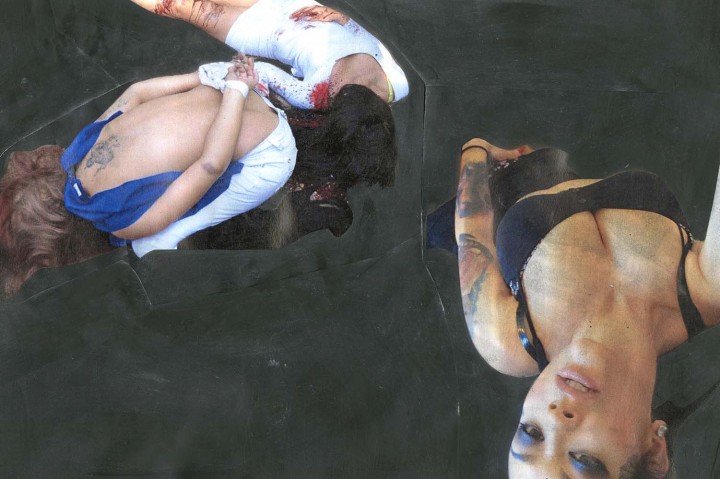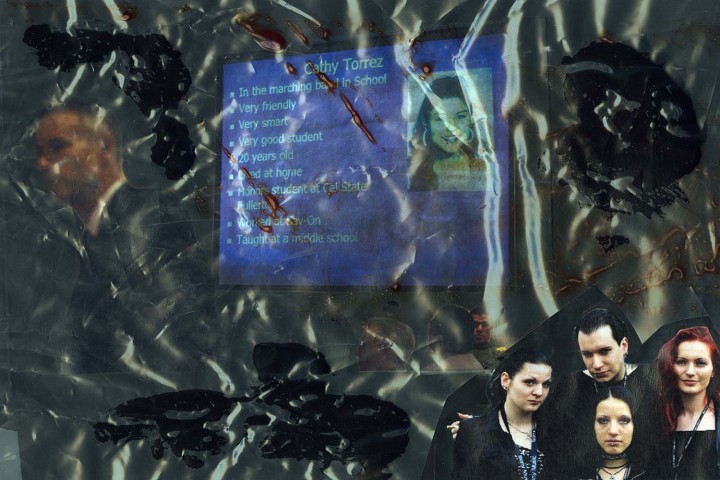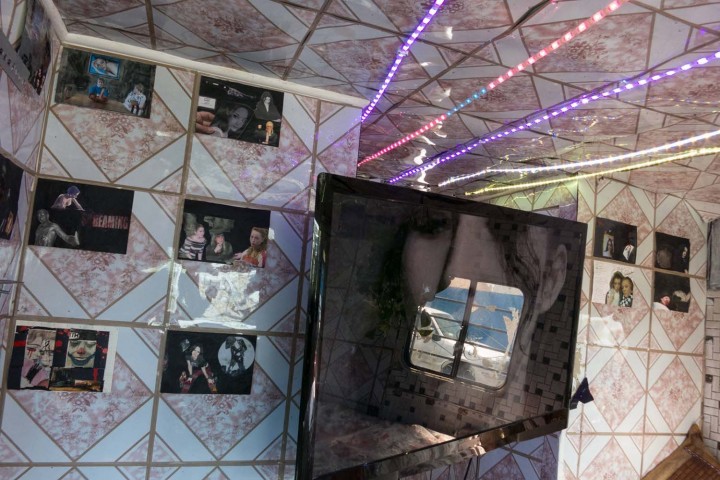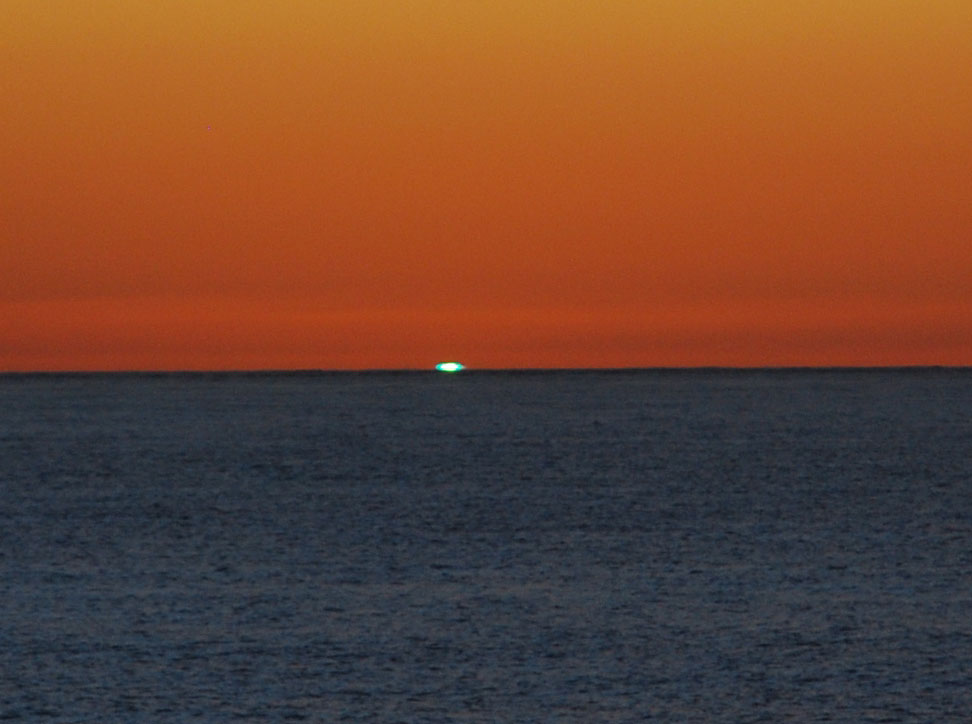Amy Fitzpatrick has been missing since New Year’s Day 2008. Over the last several years,
her story has grown more lurid: she may have been involved with an Irish hit man,
an investigating lawyer’s dossiers were stolen, her brother was stabbed to death in an incident that involved their mother’s boyfriend, and her mother recently published a book on the entire experience.
With eyes wide open and lips pursed — the profile-picture-pose duckface — Fitzpatrick appears on the flyer for Darja Bajagić’s solo exhibition with Bed Stuy Love Affair. The missing person wears a trashy branded tank top, the inspiration for the show’s title: “Diesel.”
Exhibitions at Bed Stuy Love Affair often feel intertwined with their context, but Bajagić’s inhabits the matte-black RV’s cheap rolled-out linoleum floors and walls seamlessly — it belongs to the tidy creepiness of floral-print sheets neatly tucked in with 3mm poly overlaid on the bed. Rows of regularly sized half-page collages line the bedroom gallery, culled together from Bajagić’s archive of grainy murderabilia, gore, Blog del Narco stories, Instagram selfies, memorial photographs, porn, missing-persons reports, erotic cartoons, etc. One demi-melodrama seems to depict a teen-girl hangout, careful to never reveal an actual killer. TV crime shows typically redeem their content through narratives that restore a sense of elemental justice, but Bajagić’s wavy papers appear like pages from an unapologetic diary of life in an attention economy. It’s an old story about power; an image’s moral ambiguity is as liquid as cash.
Does Bajagić accrue some debt of responsibility by using these images? In noir films, women tend to be strong and willful if somewhat damned by the power struggles of men. With the video Amazing girls. With wonderful personalities. There saints. Talk to them about life. Love. Politics…., 2015, Bajagić unrepentantly takes us through and beyond this authorial dichotomy. She asks several women to recount the same personal details outside of a goth bar. One woman describes her sushi dinner before awkwardly recounting the tragic story of her father’s death. Her parting words? No regrets.
It is perhaps this nostalgia, built into the web’s ethos, that compels us to share, no matter how dumb and meaningless it can make us seem. Power saw the same potential. However, in shades of humor both dark and absurd, Bajagić keeps these ubiquitous and traumatic images from resolving into the fully irreconcilable darkness built into human affairs.






